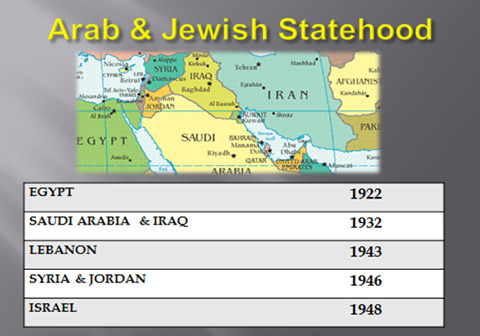Egypt 2012 – Dissatisfaction Plagues the Land!
on Wednesday, December 28, 2011 by Bill Salus As we say farewell to 2011 and usher in the New Year, disconcerting images continue to pour out of Tahrir Square in Egypt. Egyptians are again violently protesting against their fellow countrymen as a spirit of discontent plagues the land. How much longer can the Middle East’s most populated Arab state sustain such internal strife?
As we say farewell to 2011 and usher in the New Year, disconcerting images continue to pour out of Tahrir Square in Egypt. Egyptians are again violently protesting against their fellow countrymen as a spirit of discontent plagues the land. How much longer can the Middle East’s most populated Arab state sustain such internal strife?
The liberal pundits had hoped that pictures of Mubarak lying on a gurney, locked up in a caged Cairo courtroom this past August would have resulted in calm and stability in Egypt. However, this new round of protests threatens to turn Egypt into another Syria unless the Egyptian military junta can restore law and order soon.
What is at the core of Egypt’s unrest? It can be best summed up in one obvious word, “DISSATISFACTION!” Many Egyptians are dissatisfied with conditions inside their homeland. Much like the spirit of discontent that plagued Tunisia where the Arab Spring was hatched, Egypt still grapples with similar economic and political birth pangs of its own.
Many believe the central target of the Arab Spring was longstanding repressive regimes. Undoubtedly many Middle East leaders had overstayed their welcome. The first to be deposed was Tunisian President Zine El Bidine Ben Ali who ruled for 23-years. Resigning subsequently was President Hosni Mubarak of Egypt who had reigned for 30-years. Mubarak was followed by the death of Libyan President Muammar Gaddafi who exercised dominion for 42-years. Then in November, 2011, Yemen’s President Ali Abdullah Saleh tendered the terms of his resignation. Saleh had ruled for over 3 decades. Many believe the Syrian dictator Bashar al-Assad will be the next Arab leader to be deposed.

Although dictatorial leadership proved problematic, it appears to be merely the symptom rather than the root of the discontent. This was deduced when Saudi Arabia’s King Abdullah threw money at the problem. He successfully averted scheduled protests in his country in February, 2011 by boosting spending on housing by 40 billion riyals ($10.7 billion), and he earmarked more funds for education and social welfare reforms.[i]
Many attribute the Arab Spring of 2011 to a youth bulge in the Middle East motivated by the social networks of YouTube, Facebook, and Twitter to protest 7th century Islam, state –censored media, and repressive dictatorial regimes. Although these social networks played instrumental parts in perpetuating the protests, the primary catalyst to the birth of the Arab Spring was the suicidal act of a twenty-six year old street vendor in Tunisia named Mohammad Bouazizi.[ii]
Mohammad Bouazizi set himself on fire primarily to protest the lack of economic opportunity in Tunisia, which he blamed on repressive autocratic rule. His death on January, 4, 2011 sparked several more fire suicides in Tunisia, which ultimately caused Tunisian President Zine El Bidine Ben Ali to resign. It was the first time in Arab history that a dictator was deposed by popular protests.
“It’s the economy stupid,” was a phrase coined by Bill Clinton in his successful 1992 presidential campaign. Apparently Mohammad Bouazizi learned this economic lesson the hard way day after day by street vending for a substandard wage. The youth unemployment rate in Tunisia is currently sitting at 30%. With no hope in sight Bouazizi and the others that followed his example made their protest statements by committing blazing suicides. Tunisia’s economy, like most every other world economy, was and still is struggling from the global financial crunch. The country presently ranks seventy-seventh among world economies according to the CIA World Factbook and World Bank.[iii]
Egypt has a plethora of geo-political problems of its own, and a failing economy sits atop the long list. Tourism, one of Egypt’s primary sources of revenue, has been hit extremely hard by a year riddled with protests. Egyptian jobs are being lost at a record pace. The unemployment rate in Egypt has risen from 8.92% in January, 2011 before the protests began to nearly 12% in November, 2011. But the real tell-tale sign of Egypt’s struggling economy is the 25% unemployment rate plaguing its youth.[iv] Moreover, as of October, the country’s net foreign reserves had fallen to $22 billion from $36 billion at the end of 2010. Some believe at this pace Egypt’s economy could collapse by 2013.[v]
Could current deteriorating conditions in Egypt hint of a prophetic fulfillment of Isaiah 19, which might ultimately lead to Egyptian involvement in the Psalm 83 Arab-Israeli war? Could the world be on the verge of witnessing the fulfillment of several Egyptian centered Bible prophecies? In light of burgeoning violence on the streets of Tahrir Square in Egypt a closer look at the ancient Hebrew scripts of Isaiah 19 and Psalm 83 is warranted.
Psalm 83:6 lists the Hagarenes in a ten-member confederacy that wars against Israel in a final Arab attempt to destroy the Jewish state. According to Genesis 16:1, Hagar was a matriarch of Egypt and the Hagarenes descended through her son Ishmael. The Ishmaelites are also listed within the Arab confederacy probably representing the modern-day nation of Saudi Arabia.
Isaiah 19:1-2 declares:The burden against Egypt. Behold, the LORD rides on a swift cloud, And will come into Egypt; The idols of Egypt will totter at His presence, And the heart of Egypt will melt in its midst. “I will set Egyptians against Egyptians; Everyone will fight against his brother, And everyone against his neighbor, City against city, kingdom against kingdom.[vi]
Approximately 2800 years ago the ancient Hebrew sage Isaiah predicted that Egyptians would fight against one another. This prediction goes far beyond political partisanship and ultimately leads to a kingdom against kingdom war that biblically represents a significant regional conflict, in contrast to a world war. In Egypt’s case, the infighting Isaiah predicts appears to spread outwardly into the neighboring Arab states culminating in a significant Middle East battle. In Psalm 83 the bible predicts the Arab kingdom will come against the Jewish kingdom. Subsequent to the fall of the Ottoman Empire in 1917, both kingdoms were rebirthed. The image depicts when the Arab states and the Jewish state regained their individual statehoods.

I wrote about this subject in early 2011 before the term Arab Spring was coined. This article entitled “I Will Set Egyptians Against Egyptian,” linked here, quickly became the most widely read article I had ever written and was viewed by tens of thousands of people throughout the world. This article analyzes additional information in Isaiah’s prophecy that seems to suggest that his predictions are relevant for our time.
Isaiah’s prophecy predicts that the Egyptian economy deteriorates rapidly like a “swift cloud.” Below is a summary of conditions that adversely affect Egypt according to Isaiah 19.
Isaiah 19:3 – the spirit and counsel of Egypt fails. This condition could result from a failure of the newly elected officials in Egypt to appropriately bring about the necessary reforms Egyptians desperately and hurriedly need. In the New King James Bible the verse reads,
The spirit of Egypt will fail in its midst; I will destroy their counsel, And they will consult the idols and the charmers, The mediums and the sorcerers.
The New American Standard Bible translates the same verse as follows,
Then the spirit of the Egyptians will be demoralized within them; And I will confound their strategy, So that they will resort to idols and ghosts of the dead And to mediums and spiritists.
The prophet seemingly predicts a future period of inept governance wherein Egyptians become demoralized. The year-long protests in Tahrir Square evidence that Egyptians have grown increasingly dissatisfied with their government. Perhaps the longstanding reign of the Mubarak regime is partially to blame for creating this predicted condition.
Isaiah informs that this regrettable political predicament causes the countries leadership to seek guidance from pagan spiritual sources. Interestingly, we see that Egypt is presently moving in this religious direction, as approximately 70% of the recently elected officials come from the Muslim Brotherhood and the Salafist Al Nour party. Many political pundits suspect that these religiously driven parties will attempt to implement a constitution based upon strict Islamic Sharia law. Allah is the pagan god of Islam.
Unsound religious-based governance causes the country to implode from within causing the lack of law and order, which in turn opens the door for anarchy. This sets the stage for the prophet’s next prediction in verse four.
Isaiah 19:4 – Egyptians fall under the rule of a cruel master, a fierce king. Presently, Egypt is predominately ruled by an interim military junta that thus far appears reluctant to release full power to the newly elected Egyptian politicians. If this military condition persists, a cruel leader could emerge and initiate Marshall Law to squelch the violent protests.
The next three conditions could result from kingdom coming against kingdom in a war, natural disasters, and / or continued geopolitical deterioration inside Egypt.
Isaiah 19:5 -8 – the waters turn foul and the fishing industry runs amuck.
Isaiah 19:9 – commerce and the clothing industry falters.
Isaiah 19:10 – predicts entire economic collapse. This passage predicts that “All who make wages will be troubled of soul.”[vii]
 It is important to note that technically the Arab Spring began like a swift cloud in Egypt, like Isaiah 19:1 predicted. Although Tunisia was the first Arab country to protest in January, 2011, political unrest there was resolved relatively quickly. Tunisian president Zine al-Abidine Ben Ali was deposed from office without much bloodshed within approximately two weeks from the time the protests began. But subsequently, it was as though a swift cloud moved slightly from the west into the center of Egypt, causing Egyptians to come against Egyptians. Events in Egypt appear to have worsened ever since.
It is important to note that technically the Arab Spring began like a swift cloud in Egypt, like Isaiah 19:1 predicted. Although Tunisia was the first Arab country to protest in January, 2011, political unrest there was resolved relatively quickly. Tunisian president Zine al-Abidine Ben Ali was deposed from office without much bloodshed within approximately two weeks from the time the protests began. But subsequently, it was as though a swift cloud moved slightly from the west into the center of Egypt, causing Egyptians to come against Egyptians. Events in Egypt appear to have worsened ever since.
Another important biblical note to consider, is that Daniel 2:21 informs us that it is the Lord that causes leadership changes, and that’s seems to be what is occurring as a result of the Arab Spring. And He changes the times and the seasons; He removes kings and raises up kings; He gives wisdom to the wise And knowledge to those who have understanding.[viii]
It is the same Lord that Isaiah says rides on a swift cloud into Egypt, that Daniel declares removes and raises up kings. The Arab Spring has been characterized by swift moving events in Egypt, as well as drastic changes in key leadership positions. Several longstanding rulers been removed from power, paving the way for regime changes in the Arab world. Let’s not forget that in addition to the Arab national leaders that have died or been deposed, Al-Qaeda terrorist leaders Osama Bin Laden and Anwar al-Awlaki were also assassinated in the same year.
Isaiah 19:11-14 continues to paint a grim prediction for Egypt. These verses basically foretell that Egyptian life becomes increasingly bleak and the nation resembles a drunken man who can’t hold down a job that staggers in his own vomit.
Isaiah 19:15 says pointedly that someday there will be no employment opportunities remaining for Egyptians. Without employment, life under a ruthless regime will likely create a national condition of despair.
And the land of Judah [Israel] will be a terror to Egypt; everyone who makes mention of it will be afraid in himself, because of the counsel of the LORD of hosts which He has determined against it. (Isaiah 19:17, nkjv).
What does Isaiah say next? Does all this trouble in Egypt lead to a war with Israel? Is that why Egypt becomes terrorized by the mere mention of the Jewish State? If so, then what happens to Egypt’s peace treaty with Israel?
Isaiah 19:18 predicts that five cities in Egypt will someday speak the language of Canaan, referring to Hebrew. Isaiah says one of those cities will be called the “City of Destruction,” suggesting that it becomes a war-torn city. Presently, there is no reason for a language transfer to Hebrew in five cities in Egypt, but if Israel defeats Egypt in a war, namely the Psalm 83 war, then it is possible that such a language transfer could occur.
For more information about the possible role of Egypt in connection with Isaiah 19 and Psalm 83, you are invited to read my book called Revelation Road, Hope Beyond the Horizon. More information about Revelation Road, including a book trailer is available here.


